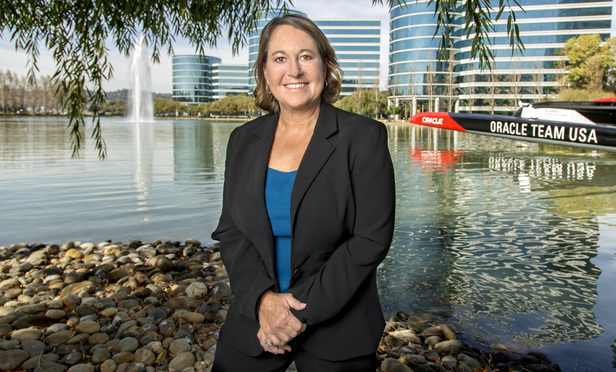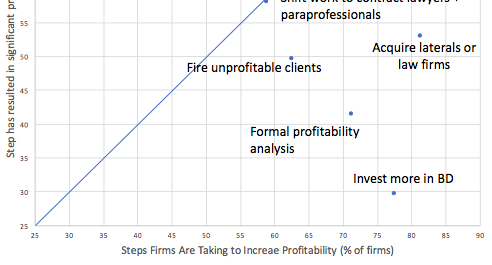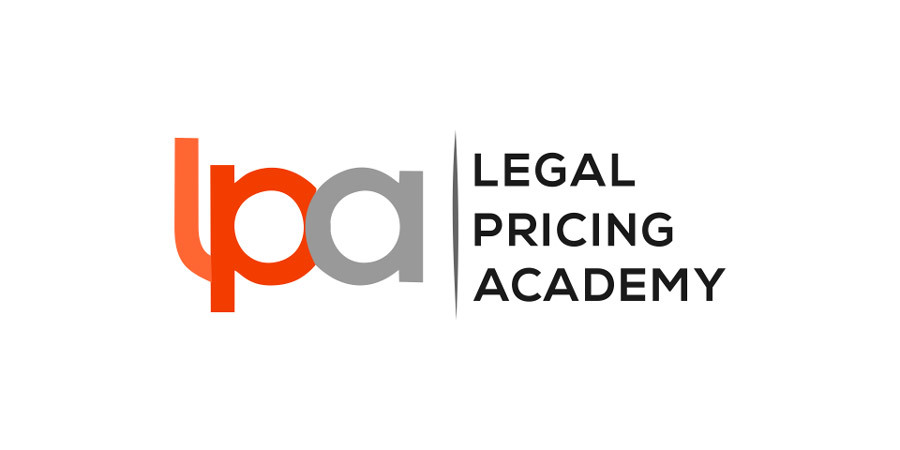With Validatum Pricing Espresso® we aim to bring you your regular pricing 'shot' - the best, most interesting, thought provoking and informative material we can find globally which will be of interest, relevance and help to you in your legal services pricing challenges. [Note: we don't always agree with the content of others that we post but the philosophy of Validatum Pricing Espresso® is shared perspectives, not a personal 'soap-box']

FEATURED
Pricing: Hit ‘Send’ and Hope for The Best

A face-to-face request is 34 times more successful than an email, which begs the question, why do we persist in conducting our primary price negotiations by email instead of face-to-face or at the very least, on the end of the phone?
There are at least two possible explanations, one charitable, one not so. Many will argue that the principal explanation is that we are all time starved and under pressure and it is much more efficient and cost-effective to belt out an email with a pricing proposal and await a response. This assertion has legitimacy.
A more brutal perspective might put it down to a less flattering dynamic - we're just ‘chicken’. We will do anything to avoid that visceral conversation, something we have written about recently in ‘We’ll Have a Chat at the End: A $20 Billion Black Hole’. Read more...
THE BILLABLE HOUR
Can ‘Value’ Pricing Replace the Billable Hour? (Perspective)

In law firm land, value pricing has achieved buzzword status, meaning that everyone uses the phrase with abandon and supreme confidence. (Actual adoption, of course, is another story.) But suspend disbelief for a moment: How might a legal market run on value pricing actually work?
First, it would be based on “outputs” — services rendered or results achieved — rather than “inputs” — time spent on a matter. Clients would pay for what they achieved (or think they achieved), not for the effort that went into completing the job.
Second, there would be more serious talk at the start of engagements. Lawyers and clients would agree on the scope of the work, and develop budgets, goals, and acceptable risks. Also, they would agree on a price. Read more...
Highest Rates Clients Pay Hit a Wall

The top hourly rate paid for an attorney just hit a wall.
And, this market-topping rate is exposing a few cracks in the wall, if not the very foundation itself. Clients identify $2,000 as the top rate they pay for outside counsel—identical to 2016. This means the 8% annual growth for the top rate paid for the last 10 years is over.* Read more...
PRICING STRATEGY
The problem with value pricing

A day in the life of the corporate legal market: A law firm submits a bill to a client. The client doesn’t like the bill because the amount is higher than expected or seems incommensurate with the value of the service. The client contacts the firm and asks for the amount to be reduced.
What does the firm do? Eight times out of ten, it reduces the amount, at least according to all the accounts I’ve heard and read. The client pushes back, and the firm gives way. This happens every day in the corporate legal world, and when it happens often enough, the nature of the transaction itself changes. The “final” bill issued by the firm actually becomes the starting point in negotiations — short and one-sided negotiations, as it turns out, because the client says, “I will pay this much,” and the firm invariably says, “Okay.” Read more...
Keeping It Practical: Tips on Pricing, Billing, and Client Communications

The practice of law is a profession, but it is also a business—one in which each lawyer is responsible for both client representation and personal and firm financial matters. Whether you are practicing in a group or solo environment, the business of law is every bit as important as the practice of law. Here are 12 tips for making sure the business of your practice runs smoothly
Contemporary time keeping equals more money, better records, and less chance of billing errors and malpractice. No matter how often we say this, too many lawyers do not keep contemporaneous time records while they are working, and so are guessing at the time they spent on particular matters—sometimes at the end of the day, too often at the end of the week or the month. Failure to keep contemporaneous time records is an invitation for disaster or worse. Read more...
The rise of market pricing

So yesterday, I posted some thoughts about the problems I saw with value pricing in the legal market. The post drew a lot of interest and several insightful comments, especially from Ron Baker, and I encourage you to read the post and comments together when drawing your conclusions about value pricing.
Today, in this follow-up post, I want to expand on yesterday’s closing comments about how I think the future likely belongs to “market pricing” — that is, a system based almost entirely on how much the buyer is willing to pay the provider. I’ll preface these thoughts with what I should probably have prefaced yesterday’s — that I’m not a pricing expert by any means, and that I’m not advocating for or against any particular pricing mechanism (well, except the billable hour — I’m always happy to rail against that). Read more...
From Expectations to Execution: 5 Silent Killers of Alternative Fee Arrangements

I find it’s often an interesting exercise to look beyond the legal profession for guidance on how to improve how we do business as lawyers. Certified Public Accountants (CPAs), in particular, can be a good source of ideas. In fact, the American Institute of CPAs AICPA) is one of my favorite sources of discussion that readily translates to the legal profession. Now, not everything is on point, but every so often they run with an idea that really rings true.
Such was the case when I read an article a few weeks ago entitled “5 Silent Killers of a Financial Plan.” As I read it, it struck me that the title could just as easily have been “5 Silent Killers of an Alternative Fee Arrangement (AFA).” The issues the author identified as potential landmines for a financial plan apply quite directly to an AFA. Read more...
LEGAL PROJECT MANAGEMENT
How Legal Project Management Is Changing the Way Services Are Marketed

Ten years ago, legal marketing was all about relationships and who you went to law school with. These days legal marketing is increasingly about value: what have you done for me lately, and exactly how are you going to work more efficiently on my next matter
According to a recent survey by Altman Weil, “more efficient project management” is now one of the top demands of in-house chief legal officers. Another survey by Acritas of over 800 general counsel at large companies reported that 60% of clients said that high quality project management is “essential” when they select law firms.
In one sense, any lawyer who has ever planned a budget or managed a team has served as a legal project manager. But clients are now choosing law firms based on their ability to apply a more systematic and disciplined approach to management that delivers more value, more quickly. Read more...
PROCUREMENT
15 questions you must ask before completing a Request for Proposal (RFP)

Requests for proposals (RFP), Requests for Information (RFI), Invitations to Tender (ITT), and Requests for Quotation (RFQ) can often be the thief of time, money and resource. How would you react to a document from a prospect that was more accurately titled 'Request for Free Consulting'?
If you are going to get sucked into an RFP process of any kind, start with the premise that all requests are bogus. If you do decide to proceed, do so with your eyes wide open. Make every effort to disqualify yourself out as early as possible if you can't win it.
If you are in, be sure you don't do anything unless you know why you are doing it, and what happens next if you do. Read more...
Oracle's Legal Ops Chief Offers Tips on Spend Management

As all legal departments face pressure to be more efficient with fewer resources, legal operations can offer relief when it comes to managing costs. Christine Coats, vice president of legal operations at Oracle Corp., offered Corporate Counsel tips on how an ops team can cut spend, in some cases by millions of dollars.
"Your legal team is always asked to do more with less," said Coats, who joined Oracle in 2015 and is also part of the executive leadership team at the Corporate Legal Operations Consortium, an organization with legal ops leaders as members who aim to optimize legal services delivery models and share knowledge. And whether the mandate is to reduce spending or head count, she said, a legal ops team focused on, for instance, process improvements, cost management of outside counsel and department budget can help tremendously. Read more...
PRICING PROFESSIONALS
As the Billable Hour Model Fades Away, Senior Pricing Execs Emerge as Legal Industry Profitability Czars

In their recently published "2017 Report on the State of the Legal Market,” the Center for the Study of the Legal Profession at Georgetown University Law Center, and Thomson Reuters Legal Executive Institute, noted that 2017 marks the 10-year anniversary of the Great Recession–and the corresponding impact on the legal market that followed:
One of the most potentially significant, though rarely acknowledged, changes of the past decade has been the effective death of the traditional billable hour pricing model in most law firms.
While the term “billable hour” hasn’t disappeared, the underlying concept has been significantly transformed. As clients have increasingly demanded up-front agreements on budgets “… the imposition of [this] discipline on law firm matters forces firms to a very different pricing model than the traditional approach of simply recording time and passing the associated costs through to the client on a billable hour basis.” Read more...
Price Like a Professional Because That’s What You Are

Setting your hourly billing rate or quoting flat fees is a big challenge when you are starting out, launching as a solo, or re-vamping your practice. Whichever method you choose for determining your rate, keep one overriding principle in mind: you are a professional, and your prices should reflect the value that you bring to your clients.
Think of all the people you pay to do work for you. Even if you’re a hardcore DIYer, there must be things you pay to have done. Perhaps you regularly pay someone to clean your house, or wash your car, or change your oil. Those things are of great benefit to you even though you really could do them yourself. Read more...
The evolving role of legal pricing professionals

Pricing is a key lever influencing and driving financial performance as well as a pressure point for law firms as their clients demand more for less and a better balance between pricing and value. Toronto-based consultant Nancey Watson sat down recently with Stuart Dodds, director of Global Pricing and Legal Project Management for Baker McKenzie, and editor of Pricing on the Front Line, to discuss the current state of law firm pricing and the evolving role of the pricing professional.
Nancey Watson: What was the initial catalyst for the role of pricing professionals in law firms? Read more...
PRICING ECONOMICS
The sooner the better

It’s always struck me that there is often a disconnect or lack of understanding with fee earners between the time they charge on their time sheets and the funding of a law firm. In the majority of firms, time recording systems continue to be used and I’m not going to get into a discussion now about whether that’s out of touch, appropriate or useful – that can be covered another time. Fee earners, from day one, are taught to record time and quite often are driven to do this merely by a chargeable hours target
The concept of meeting your annual budgeted chargeable hours to be paid a bonus at the end of the year is still quite common and it’s clear what kind of behaviour that will drive. Until a fee earner assumes billing responsibilities, it is unlikely that they will be aware of the impact of their recording of time either on the firm’s financial results, the consideration to the level of fees to be charged, the timing of that billing and, ultimately, of when the bill is paid. Read more...
The Dirty Details - What can we learn from “dirty data”? Data and law firm pricing

Let’s get this out of the way and I hope to never repeat it, when it comes to data – garbage in, garbage out. Ok – no more - I hear it all the time it is tossed around as a sigh and a shoulder shrug in a meeting “well, garbage in, garbage out”. Well, so much for never saying it again. All jokes aside the statement is valid, but I think that ignoring the dirty data can be a mistake. It may have holes and it might be disorganized, but it can teach us a lot about the business decisions that were made prior to the data being cleaned. I discovered working on my graduate thesis that the dirty data can have a lot to say.
My thesis examined how think tanks influence public policy and required an analysis of a significant amount of data. I collected 20 years of newspapers across 4 cities and searched each by a select set of keywords. Upon collecting the information, I used SPSS to analyze the data by tone, content and other variables. Excited to go hit “go” I ran the analysis and none of the results were statistically significant. Read more...
Law firms need a wake-up call on commoditisation

Law firms are suffering from commoditisation blindness as their profits disappear and clients call the shots.
Commoditisation is the single most disruptive factor in the legal sector and lawyers need to stop sticking their heads in the sand as it is eating their profits, a leading law firm consultant and author Jaap Bosman says. Contrary to law firm opinion it can be applied to a range of complex work such as project finance and is not just simple or bulk legal work. Furthermore, it is not measured from a law firm's perspective - it is the client who decides, Mr Bosman says, pointing out that a 10 percent drop in revenue will result in a 30 percent drop in profit. 'This leveraged effect is one of the main reasons why commoditisation is so dangerous for law firms, he says in the ABA Journal. Read more...
Why You May Not Be Getting 'Fair Value' With Discounted Legal Rate

In 2010, William Poundstone wrote a book on pricing called Priceless: The Myth of Fair Value (and How to Take Advantage of It). Poundstone lays out the psychological foundation of pricing and uses it to evaluate different pricing decisions we make. For instance, if you look at a menu, the different ways the restaurant organizes the items may impact our decision about what we order—everything from the description of the entrees, to the location of the pricing, to the use of images. The book shows us that when it comes to paying “fair value,” we are all suckers.
One of the significant concepts the book explores is “anchoring.” The concept, covered extensively by psychologists Amos Tversky and 2002 Nobel Prize winner Daniel Kahneman, is fairly straightforward. Anchoring is a bias that we have in relying on one piece of information in making a decision. For example, before you buy a new car, you may go online and build the car you want, and the website generates an estimated price based on your selection. Read more...
Survival of the Fittest (and the Best Prepared) – Agility in the Face of Costs Upheaval

July marks the deadline for the end of Lord Justice Jackson’s review of Fixed Recoverable Costs. This follows on from the consultation into fixed recoverable costs for clinical negligence claims which closed in May. Given the potential changes that could be imminent as a result, now is the time to examine how we may have to adapt to survive - both to remain profitable in a business context and to ensure access to justice for clients.
Perhaps the real issue is providing value for money where the relationship between the costs incurred to run a case effectively and the costs recoverable between the parties may become increasingly frustrated. Read more...
Law Firm Profitability + Service Delivery: What the Altman Weil Survey Says

Law firm management needs to think more about their clients. Right now, they expend more energy on boosting profitability with inward measures than they do on client service. That cannot be sustainable. Protecting long-term profitability requires focusing on clients, specifically better service delivery and value. The recently released 2017 Law Firms in Transition (LFiT) survey by Altman Weil has several findings that support my view.
LFiT asks (page 25) “In the last few years, has your firm done any of the following specifically to improve firm profitability? Select all that apply.” A related question (page 26) asks “For each of those things you’ve done to improve your firm’s profitability, has the action resulted in a significant improvement in profitability?” I created a scatter chart to understand the answers: Read more...

